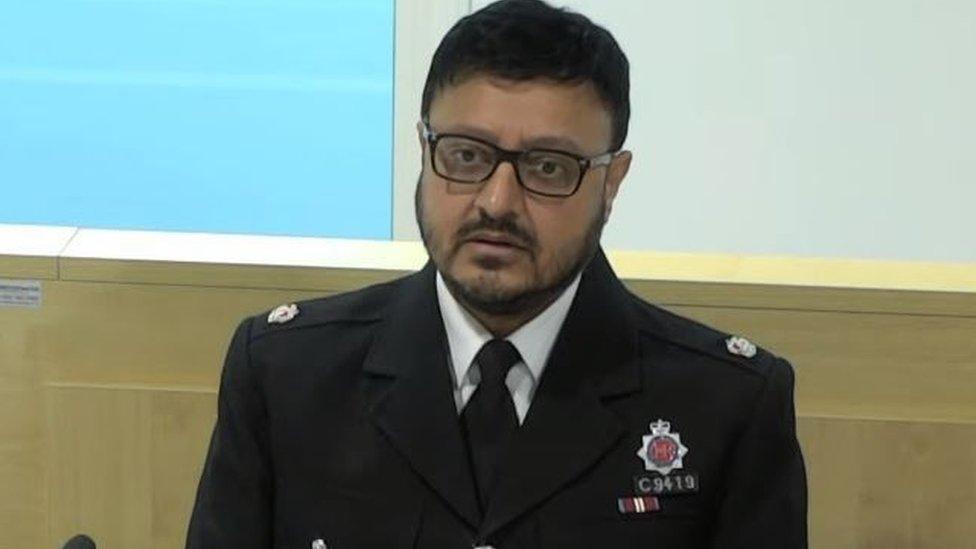Manchester Arena Inquiry: ‘Unforgivable' security mistakes
- Published
Paul Price and his partner, Elaine McIver, were at the Manchester Arena when the bomb exploded
Paul Price does not know how close he was to death on the night of the Manchester Arena bombing.
Though he remained awake in the horrific minutes that followed, he has barely any memory of it, and for that he is grateful.
His injuries were catastrophic, a seemingly endless catalogue of destruction from which his body will never fully recover.
Dozens of surgeries. Shrapnel still embedded in his body. Permanent loss of function in his hand and leg. Weekly painful rehab sessions.
But nothing compares to the loss of his partner Elaine McIver, who was among the 22 people killed when suicide bomber Salman Abedi detonated his home-made device.
"She was the love of my life, I was the love of her life", he said.
'A blessing'
For a long time he could not bring himself to talk about her.
"It was just too upsetting," he said.
"And I'm ashamed to say it, but for such a long time I remember thinking my hurt was so much that I thought if someone could give me a tablet and I could forget about her, I'd be OK.
"Now her memory to me is a blessing and I love talking about her. And I'm glad of that."
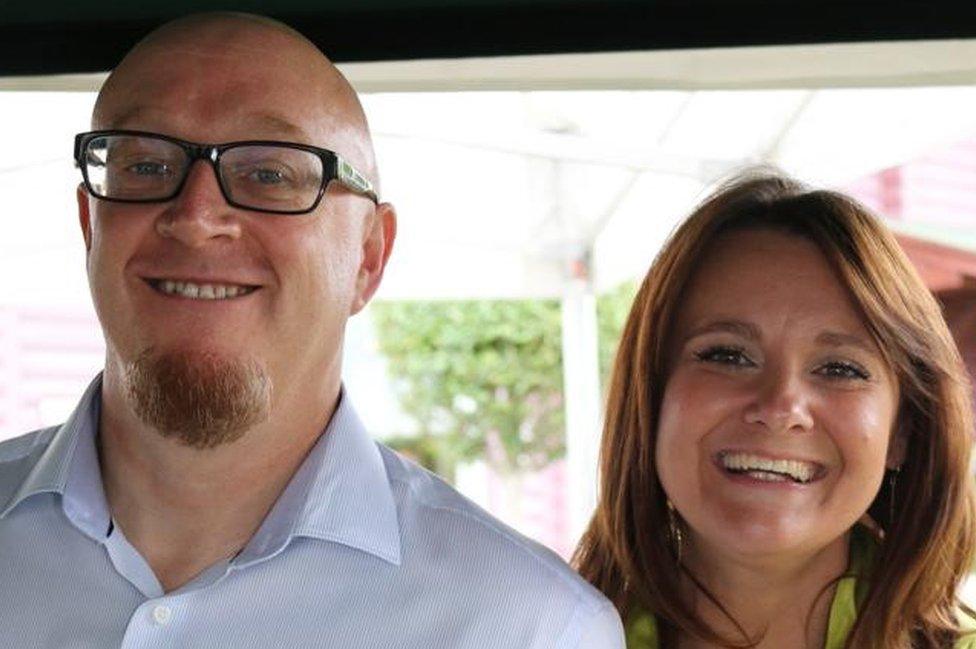
"She was the love of my life," says Paul Price about Elaine McIver
Ms McIver was a detective constable who had worked for Cheshire Police and the North West regional crime unit Titan.
She was 43 when she died - off duty and with Mr Price to collect his daughter from the Ariana Grande concert.
Mr Price describes how much pride she took in her work and how proud she was to be a police officer, helping to keep people safe.
It has only made it harder to learn about failings in security in May 2017, which he believes made it "easy" for the bomber to slip through the net, unchallenged by anyone in authority.
On Thursday, the first findings from the inquiry will be made public. The report will focus on the security arrangements at the arena, and is likely to be critical.
Mr Price said: "They all say we will learn from this... I don't know.
"The failings go back a long time, so many missed chances and it's hard to hear.
"There were failings on the night but the weeks, months before made it easy for him and it shouldn't have been so easy."

Elaine McIver was one of 22 people killed in the May 2017 bombing
On the night Abedi murdered Ms McIver and 21 others, he hid for nearly an hour in a CCTV blind spot in the foyer of the Manchester Arena - a public area connected to the railway station next door.
It was a spot the bomber had planned carefully in repeated hostile reconnaissance trips over previous days.
It was here he waited as parents and families gathered to collect loved ones leaving the concert, and it was here that he walked into the crowd at 22:31 BST and blew himself up.
Hours of CCTV examined by the inquiry show Abedi earlier walking around the station, bent under the weight of his bulging rucksack, and at one point fiddling with wires sticking out of his clothes.
Mr Price said he has felt particularly upset by revelations at the inquiry about the behaviour of British Transport Police (BTP), who were responsible for policing the station and foyer areas.
'Let down'
He has learned that against instructions, there was no police officer stationed in the foyer for the end of the concert.
"I didn't want to be let down by BTP, but I was," he said.
"And I think that hurt more than anything because Elaine was a police officer."
Though they raced to help after the bomb went off, the officers on duty that night have been criticised for their behaviour in the hours leading up to the atrocity - including a two-hour dinner break and a 10-mile round trip to buy a kebab.
At one point, when Abedi took his final trip through the station to his hiding place in the foyer, there were no BTP officers on duty in the area at all.
Mr Price said: "After the explosion there was heroics and you know, they stepped up, but the failings before the explosion were unforgivable as far as I'm concerned.
"They were there to protect, and they weren't there."
BTP has accepted the attack happened on its watch and it let the public down, but it says its officers did act with heroism following the explosion.
But it was not only BTP who were responsible for keeping people safe in that area. Arena operators SMG and its contracted event security providers Showsec also shared responsibility.
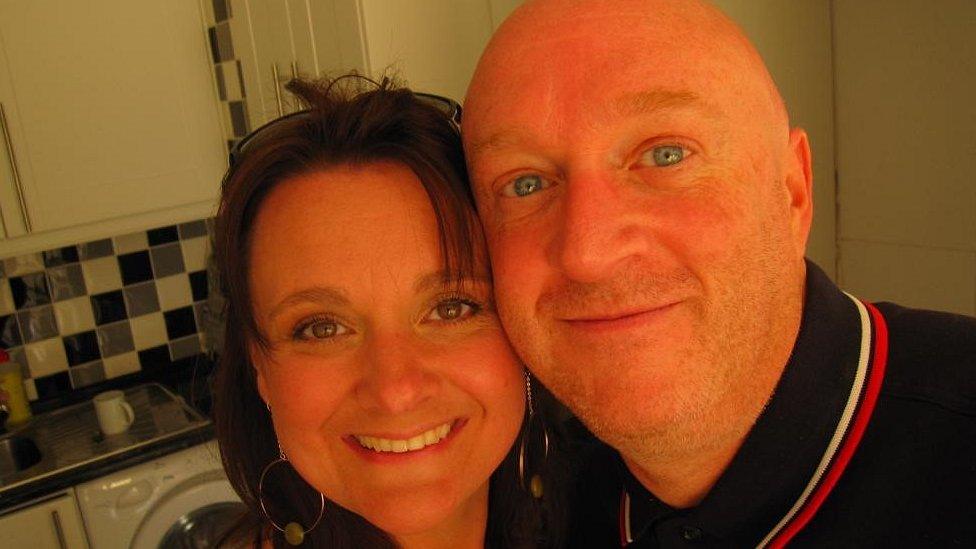
Paul Price says he is "working on his recovery and trying to look forwards"
For Mr Price, he feels there has been a sense of blame being shifted and an unwillingness by corporations to admit failings in their preparedness for an attack of this kind.
He said: "I was disappointed in SMG and Showsec to begin with, because they just seemed to be passing the buck between one another.
"I thought - just admit the failings and try and learn from it. But it just seemed to be that they just didn't want the blame on them."
SMG, Showsec and British Transport Police have all accepted shortcomings in their risk assessments.
But SMG said other accusations that it prioritised profit over safety were unfair, while Showsec said its own errors did not contribute to the bombing.
Today will be yet another difficult day for Mr Price and all those impacted by the atrocity at Manchester Arena.
Meanwhile, he is still working on his recovery and trying to look forwards.
He said: "For such a long time I thought I could never be happy again, I felt life was a prison sentence I had to endure... the world seems a lonely place now, and frightening for me.
"But you know, I can see glimmers of light now... I am still alive, I've got to live my life for my kids, for everyone who's helped me.
"A lot of people have invested a lot of time in me to get me back on my feet. I can't let them down, and I can't let Elaine down."

Why not follow BBC North West on Facebook, external, Twitter, external and Instagram, external? You can also send story ideas to northwest.newsonline@bbc.co.uk
Related topics
- Published15 June 2021
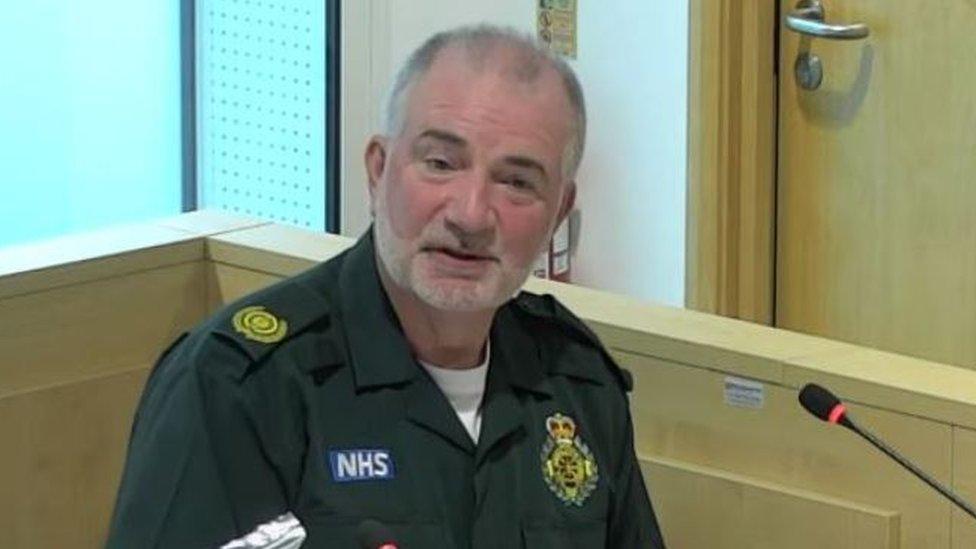
- Published9 June 2021
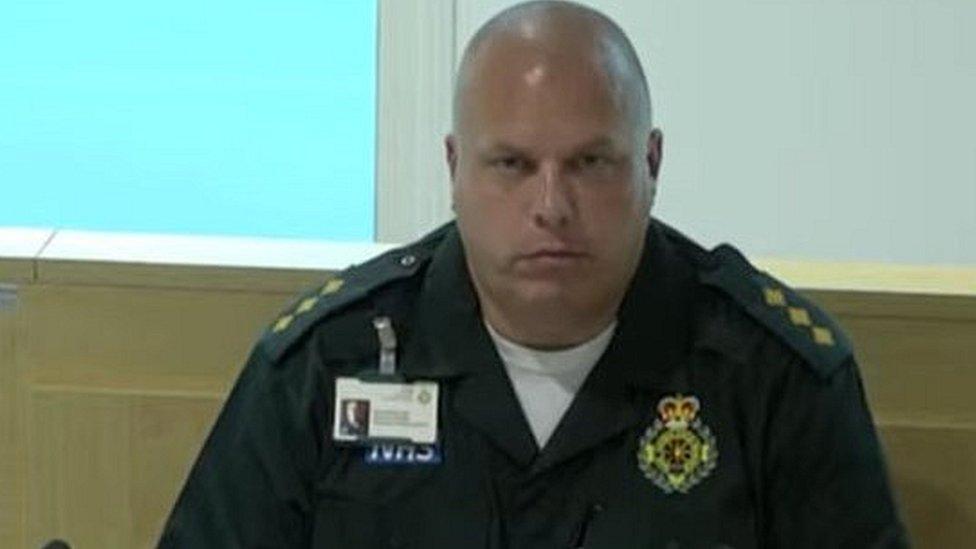
- Published8 June 2021
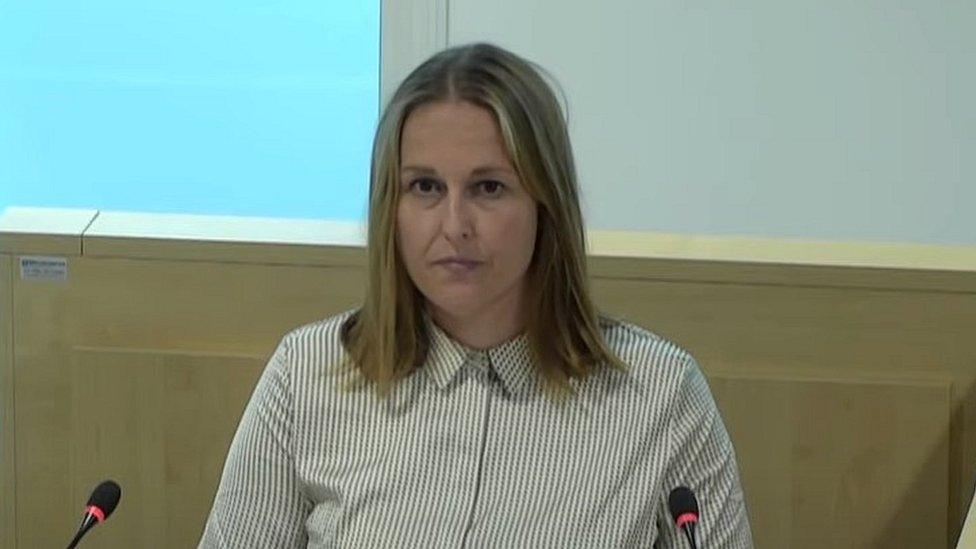
- Published7 June 2021
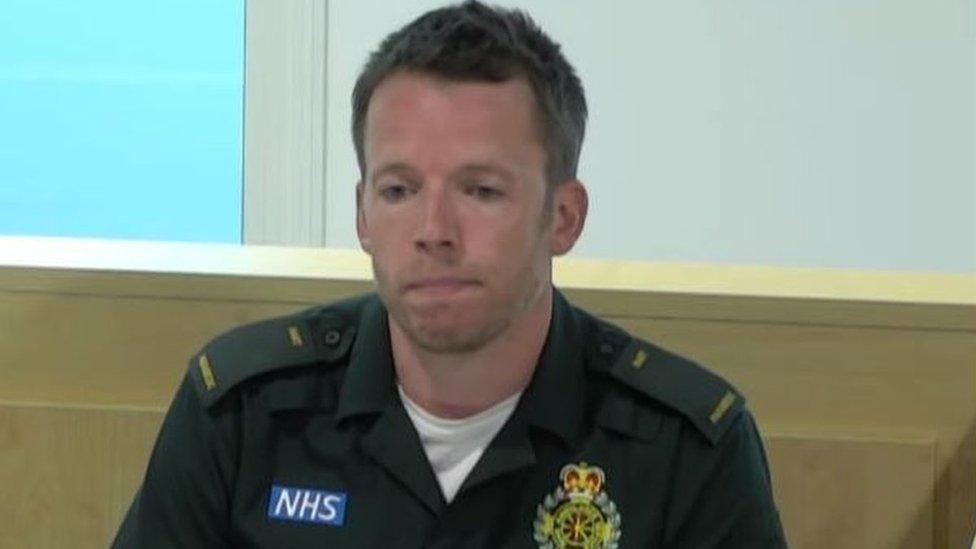
- Published27 May 2021
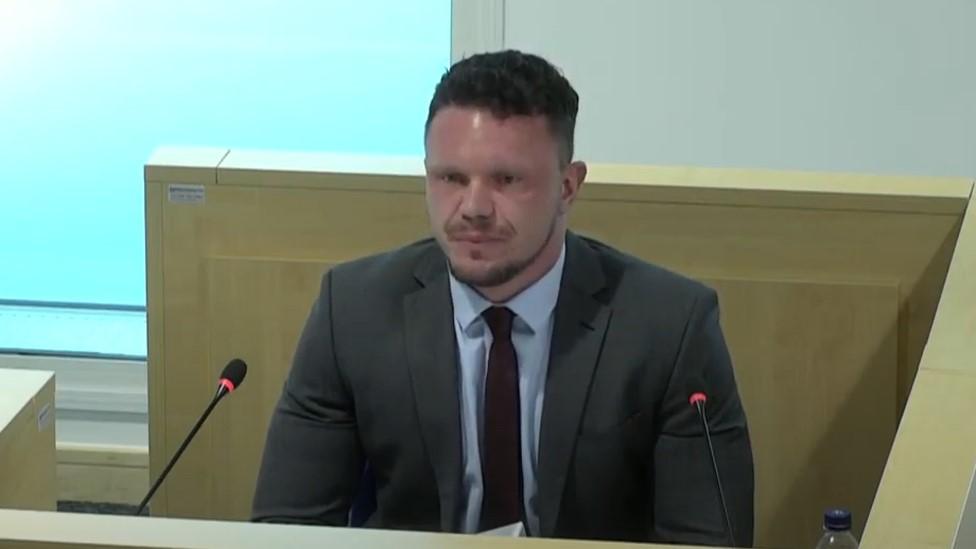
- Published26 May 2021
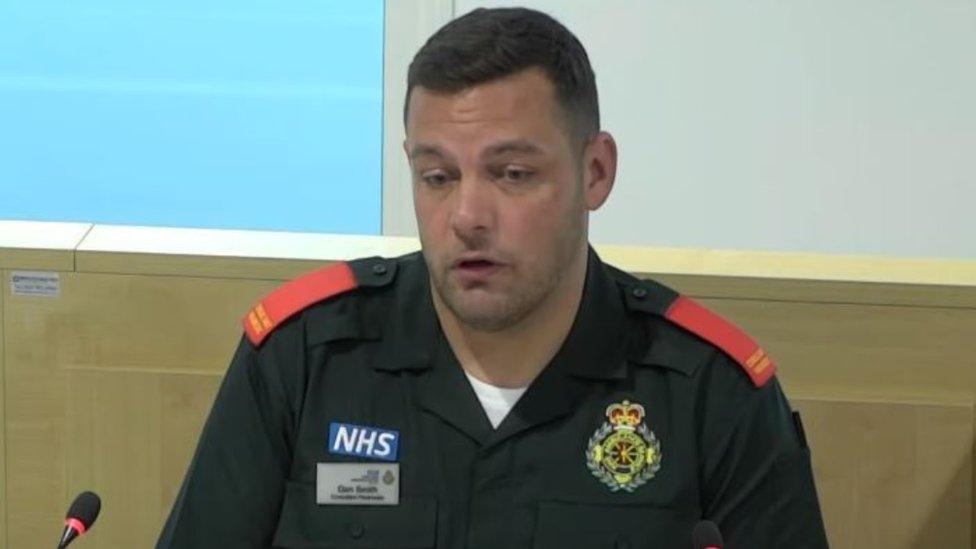
- Published25 May 2021
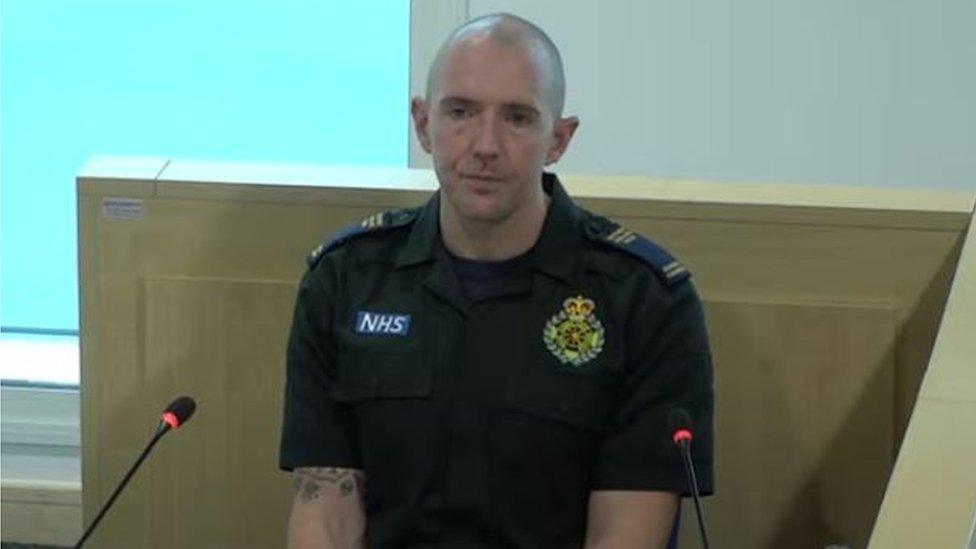
- Published24 May 2021

- Published20 May 2021
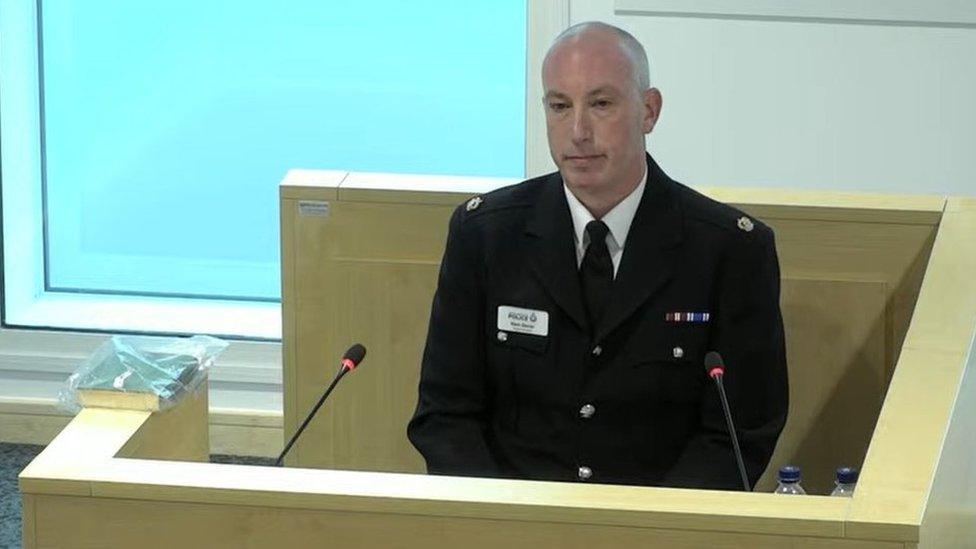
- Published18 May 2021
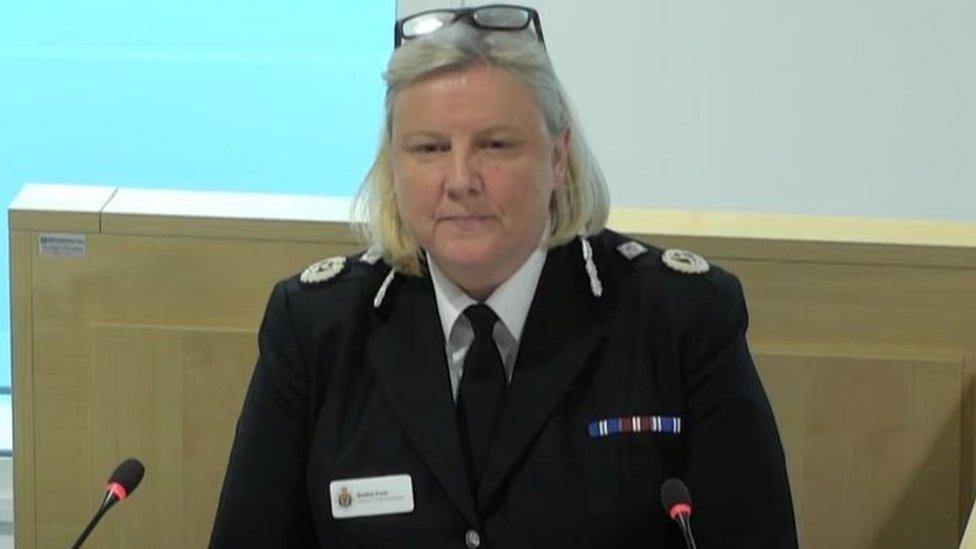
- Published17 May 2021
